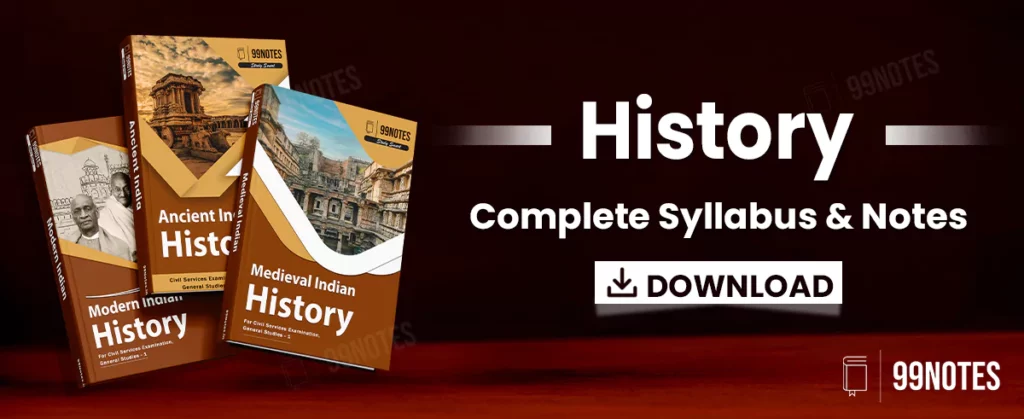
Complete History Notes for UPSC & Syllabus Download
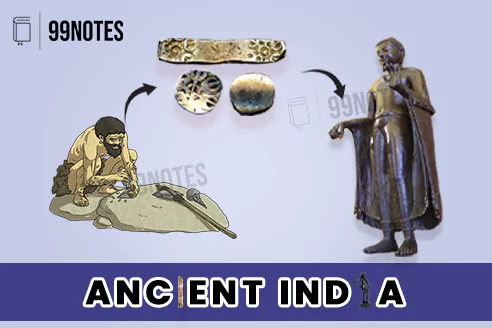
Ancient India
Ancient India is an important part of the history of the Indian subcontinent, and understanding its history and culture is crucial for UPSC CSE preparation. Here are a few reasons why:
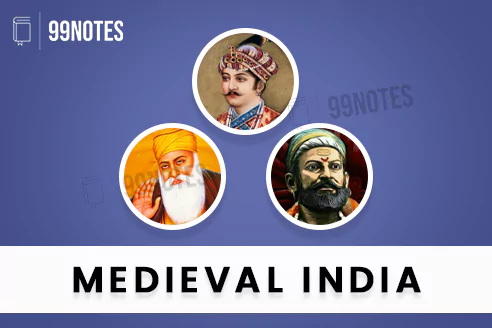
Medieval India
medieval India is typically covered in the Indian History section of the General Studies paper. This section tests candidates’ knowledge of the political, social, economic, and cultural developments in India from ancient to modern times.
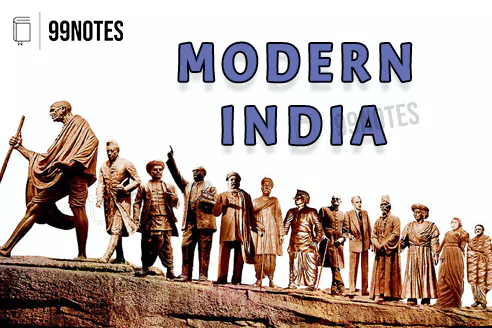
Modern India
The study of modern India is an important part of the UPSC Civil Services Exam, as it tests candidates’ knowledge of the political, social, economic, and cultural developments in India in the recent past. Some of the key topics that candidates should be familiar with when studying modern India for the UPSC Civil Services Exam include:
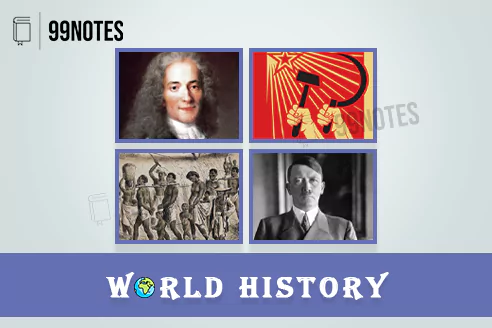
World History
World history is not a standalone subject in the UPSC Civil Services Exam. However, candidates are expected to have a broad understanding of world history as part of the General Studies paper, which covers Indian and world history, culture, and geography.
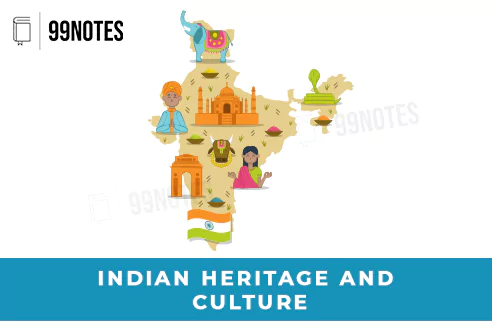
Indian Heritage And Culture
The study of Indian heritage and culture is an important part of the UPSC Civil Services Exam, as it tests candidates’ knowledge of the diverse and rich cultural traditions of India. Some of the key topics that candidates should be familiar with when studying Indian heritage and culture for the UPSC Civil Services Exam include:
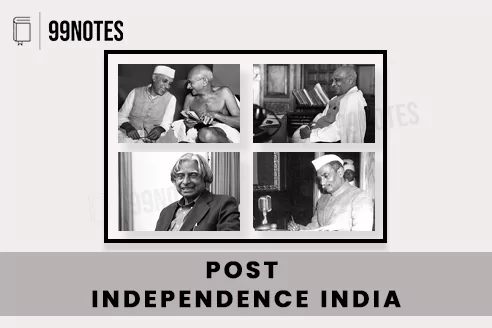
Post Independence India
The study of post-independence India is an important part of the UPSC Civil Services Exam, as it tests candidates’ knowledge of the political, social, economic, and cultural developments in India since the country gained independence in 1947.
- Magadha Empire (544-320 BCE): Ancient India’s Glorious Kingdom (Ancient History Notes)
- Megaliths: Ancient Stones & Their Mysteries (UPSC Exam Notes)
- Economic and Cultural Impact of the Mughal Empire
- Later Mughals- Decline of Mughal Empire (Complete History Notes for UPSC Exams)
- Maratha Empire: History, Rulers, War & Administration [UPSC Notes]
